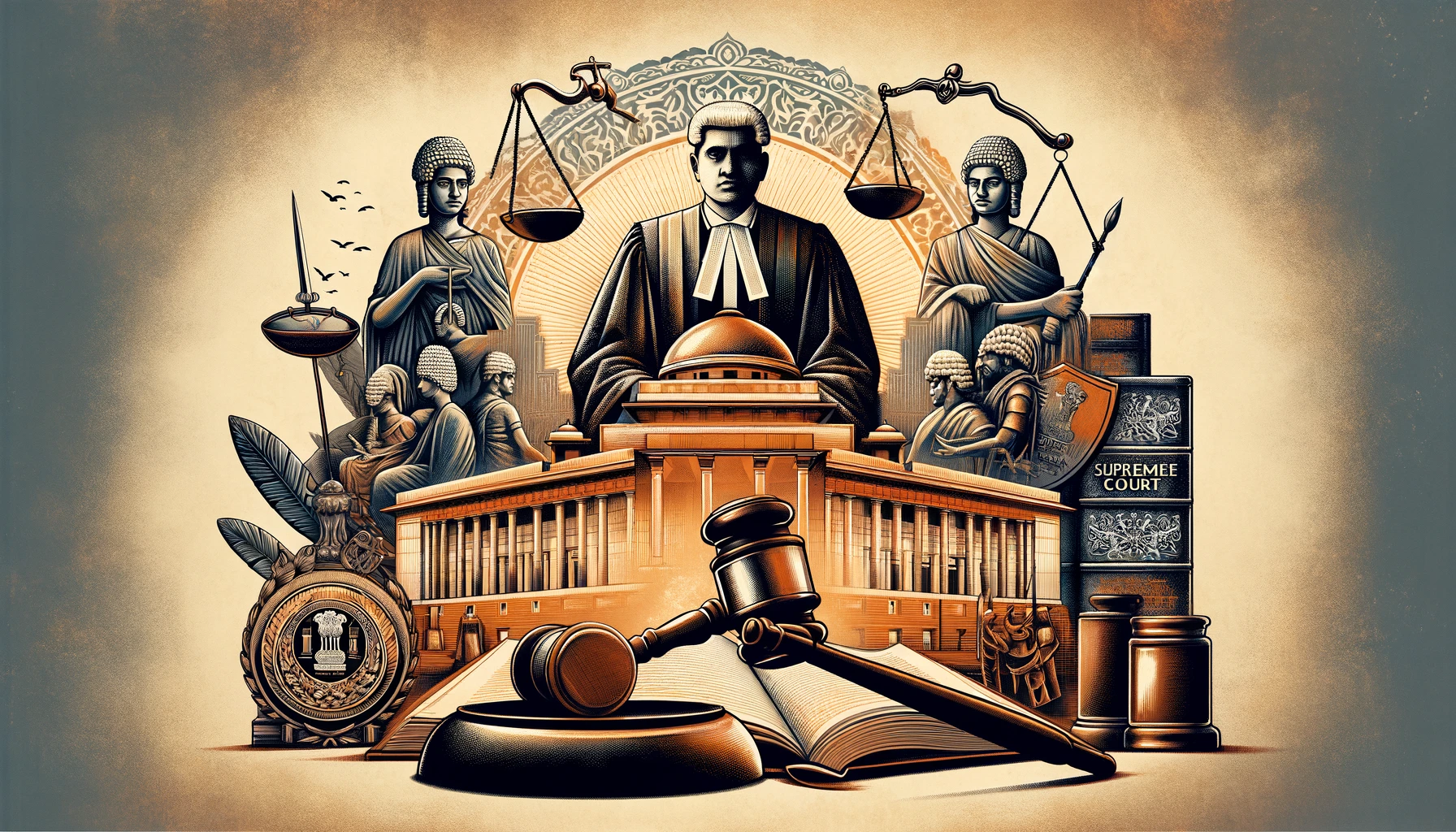Introduction
Imagine a vibrant sports tournament – a diverse mix of teams competing with passion and skill. But without referees, the game would descend into chaos. Penalties would be ignored, arguments would erupt, and the spirit of fair play would vanish. In a democracy, the three pillars of governance – the legislature (lawmakers), the executive (enforcers), and the judiciary (interpreters) – play a similar role. While the legislature writes the rules and the executive enforces them, the judiciary acts as the impartial referee, ensuring everyone plays by the rules and upholding the spirit of justice.
The Courthouse: Where Justice Happens
The Indian judiciary is structured like a pyramid, with a vast network of courts spread across the country. At the base are the District Courts, handling everyday disputes – a disagreement between neighbors, a property conflict, or a minor traffic violation. These courts are the first point of contact for most citizens seeking justice.
Moving up the pyramid, we have High Courts, one in each state and union territory. These courts act as the principal courts of a state, handling appeals from lower courts, complex legal issues, and matters related to state laws. Think of them as the senior referees overseeing fairness in their respective zones.
At the very pinnacle stands the majestic Supreme Court of India, the highest court in the land. Established in 1950, it serves as the ultimate guardian of the Constitution, interpreting its meaning and ensuring its supremacy. Here, the most significant national cases are heard, from disputes between states to challenges against government laws. The Supreme Court’s decisions are binding on all courts and authorities in India, making it the final arbiter of legal matters.
Judges: The Wise Elders of the Game
Presiding over these courts are the judges – the wise elders who ensure fairness prevails. These highly qualified legal professionals are appointed through a rigorous process, ensuring their independence and impartiality. Just like experienced referees, judges possess a deep understanding of the rulebook (the Constitution and laws) and the ability to interpret its complexities. They carefully listen to arguments from both sides, meticulously examine evidence, and deliver judgments based on legal principles.
The Power of Fairness: Independence of the Judiciary
The cornerstone of a strong and effective judiciary is its independence. Judges must be free from political pressure or influence. They should not fear retribution for their decisions, nor should they be tempted by favors or biases. This independence is vital for upholding the rule of law and ensuring justice for all, regardless of social status, wealth, or political affiliation.
One of the judiciary’s most powerful tools is judicial review. This allows them to examine laws passed by the legislature and executive to ensure they comply with the Constitution. If a law is found to be unconstitutional, the judiciary can strike it down, preventing its misuse and upholding the spirit of the Constitution. Think of this as the referee’s power to overturn a coach’s unfair rule that breaks the game’s core principles.
Two Teams Upholding Justice: State vs. Central Judiciary
India’s federal structure necessitates a two-tiered judicial system:
-
State Judiciary: Each state has its own High Court, which plays a pivotal role in interpreting and applying state laws within that territory. High Courts also act as a check on the power of the state legislature and executive, ensuring they function within the boundaries set by the Constitution and state laws.
-
Central Judiciary: The Supreme Court stands at the apex of the central judiciary, safeguarding the Constitution and ensuring uniformity in the application of national laws across the country. It also acts as an arbiter in disputes between states, fostering a sense of national unity and cohesion.
Guardians of Our Rights: Why the Judiciary Matters
The judiciary plays a crucial role in safeguarding our fundamental rights as enshrined in the Constitution. These rights, including the right to life, equality, freedom of speech, and religion, are the bedrock of a free and democratic society. The judiciary acts as a shield, protecting these rights from infringement by any individual or authority, including the government itself.
Beyond individual rights, the judiciary also upholds the principle of checks and balances. Just like referees can penalize players or coaches for misconduct, the judiciary can intervene if the legislature enacts laws that violate the Constitution or if the executive oversteps its authority. This ensures that no single branch of government becomes too powerful and that power remains balanced for the benefit of the people.
Beyond Courtrooms: The Broader Impact of the Judiciary
The judiciary’s influence extends beyond the walls of courtrooms. Their judgments set legal precedents, shaping how future cases are interpreted and decided. These precedents create a vast body of case law that guides legal practice and ensures consistency in the application of the law.








Leave a Reply